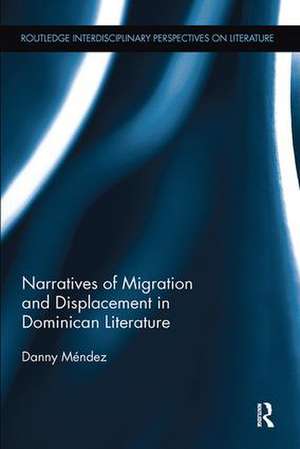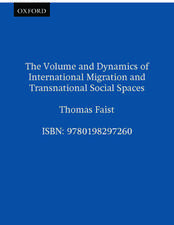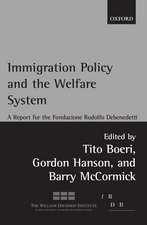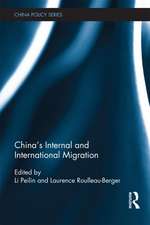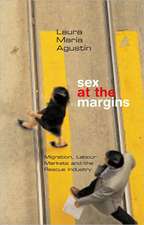Narratives of Migration and Displacement in Dominican Literature: Routledge Interdisciplinary Perspectives on Literature
Autor Danny Méndezen Limba Engleză Paperback – 24 mai 2017
| Toate formatele și edițiile | Preț | Express |
|---|---|---|
| Paperback (1) | 299.52 lei 6-8 săpt. | |
| Taylor & Francis – 24 mai 2017 | 299.52 lei 6-8 săpt. | |
| Hardback (1) | 822.01 lei 6-8 săpt. | |
| Taylor & Francis – 2 feb 2012 | 822.01 lei 6-8 săpt. |
Din seria Routledge Interdisciplinary Perspectives on Literature
-
 Preț: 277.97 lei
Preț: 277.97 lei -
 Preț: 311.26 lei
Preț: 311.26 lei -
 Preț: 371.71 lei
Preț: 371.71 lei -
 Preț: 339.94 lei
Preț: 339.94 lei -
 Preț: 311.56 lei
Preț: 311.56 lei -
 Preț: 309.27 lei
Preț: 309.27 lei -
 Preț: 310.29 lei
Preț: 310.29 lei -
 Preț: 310.60 lei
Preț: 310.60 lei - 9%
 Preț: 1007.22 lei
Preț: 1007.22 lei -
 Preț: 371.71 lei
Preț: 371.71 lei - 26%
 Preț: 819.48 lei
Preț: 819.48 lei -
 Preț: 442.68 lei
Preț: 442.68 lei - 18%
 Preț: 1110.74 lei
Preț: 1110.74 lei - 26%
 Preț: 877.19 lei
Preț: 877.19 lei - 18%
 Preț: 1117.43 lei
Preț: 1117.43 lei -
 Preț: 486.38 lei
Preț: 486.38 lei - 18%
 Preț: 699.96 lei
Preț: 699.96 lei - 18%
 Preț: 1063.31 lei
Preț: 1063.31 lei - 18%
 Preț: 707.86 lei
Preț: 707.86 lei - 18%
 Preț: 1117.07 lei
Preț: 1117.07 lei -
 Preț: 488.29 lei
Preț: 488.29 lei - 18%
 Preț: 1057.05 lei
Preț: 1057.05 lei -
 Preț: 383.63 lei
Preț: 383.63 lei - 18%
 Preț: 1109.99 lei
Preț: 1109.99 lei - 18%
 Preț: 1112.34 lei
Preț: 1112.34 lei - 5%
 Preț: 1223.90 lei
Preț: 1223.90 lei - 18%
 Preț: 1036.35 lei
Preț: 1036.35 lei - 18%
 Preț: 1057.89 lei
Preț: 1057.89 lei -
 Preț: 448.49 lei
Preț: 448.49 lei - 18%
 Preț: 1109.99 lei
Preț: 1109.99 lei - 18%
 Preț: 1052.35 lei
Preț: 1052.35 lei - 18%
 Preț: 1118.82 lei
Preț: 1118.82 lei - 18%
 Preț: 1057.09 lei
Preț: 1057.09 lei - 26%
 Preț: 822.01 lei
Preț: 822.01 lei - 18%
 Preț: 1053.16 lei
Preț: 1053.16 lei - 18%
 Preț: 1112.90 lei
Preț: 1112.90 lei - 18%
 Preț: 1109.99 lei
Preț: 1109.99 lei - 18%
 Preț: 1054.27 lei
Preț: 1054.27 lei - 18%
 Preț: 1112.34 lei
Preț: 1112.34 lei - 5%
 Preț: 1222.85 lei
Preț: 1222.85 lei - 18%
 Preț: 1110.74 lei
Preț: 1110.74 lei - 18%
 Preț: 1118.82 lei
Preț: 1118.82 lei - 18%
 Preț: 1112.21 lei
Preț: 1112.21 lei - 18%
 Preț: 1058.38 lei
Preț: 1058.38 lei - 18%
 Preț: 1059.84 lei
Preț: 1059.84 lei
Preț: 299.52 lei
Preț vechi: 341.55 lei
-12% Nou
Puncte Express: 449
Preț estimativ în valută:
57.31€ • 59.72$ • 47.46£
57.31€ • 59.72$ • 47.46£
Carte tipărită la comandă
Livrare economică 03-17 aprilie
Preluare comenzi: 021 569.72.76
Specificații
ISBN-13: 9781138110892
ISBN-10: 1138110892
Pagini: 224
Dimensiuni: 152 x 229 mm
Greutate: 0.45 kg
Ediția:1
Editura: Taylor & Francis
Colecția Routledge
Seria Routledge Interdisciplinary Perspectives on Literature
Locul publicării:Oxford, United Kingdom
ISBN-10: 1138110892
Pagini: 224
Dimensiuni: 152 x 229 mm
Greutate: 0.45 kg
Ediția:1
Editura: Taylor & Francis
Colecția Routledge
Seria Routledge Interdisciplinary Perspectives on Literature
Locul publicării:Oxford, United Kingdom
Public țintă
Postgraduate and UndergraduateCuprins
Introduction: Emotional Creolization within Dominican Narratives of Immigration: The Affective Life of the Diasporic Subject 1. Culture and the City Experience(s): Pedro Henríquez Ureña’s Critical and Creative Encounters with the U.S. 2. Floating Borders: Displaced Dominicans in Puerto Rican Memoirs and Narratives 3. A How-To Guide to Building a Boy: Dominican Diasporic Subjectivities in Junot Díaz’s Drown 4. Crooked City Women: A Reading of Gender, Race and Migration in Narratives of Two Dominican Women Writers. Afterword
Recenzii
"For those who work and teach in the constantly changing field of diasporic Caribbean cultural studies, this excellent book from Danny Mendez is essential." – Iberoamericana, Pedro P. Porbén, Bowling Green State University
Descriere
This book visits Dominican and Dominican-American writers that negotiate their transcultural status against the ideological norms of assimilation in their host country, highlighting the symbolic interplay between emotions, cognitions, and displacement in the narratives. Méndez visits writers including Pedro Henríquez Ureña, José Luis González, Junot Díaz, Josefina Báez, and Loida Maritza Pérez in order to examine the cultural production of Dominicans in transnational settings such as New York City, New Jersey, and Puerto Rico. These writers illustrate how the nature of the diaspora is built on a double register of experience: the internal history of the Dominican Republic, and the experiences of Dominicans in the United States and Puerto Rico. The study illustrates the numerous ways in which Dominicans’ subjective interpretation of their experiences of migration and incorporation into U.S. society, seen through the filter of multiple creolizations of the past, are woven into their written works as a series of variations on Americanness and Dominicanness. Through the testimony of the visited writers, Méndez maps some of the psychological constraints impinging on the symbolic world of immigrant populations who are engaged in negotiating their cultural and identity images in their host countries.
